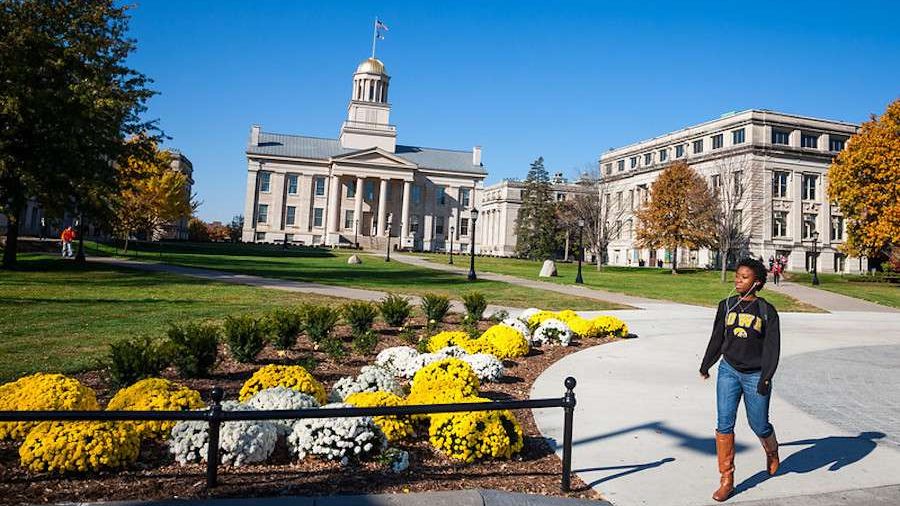Lawyers representing a Christian group kicked off of a college campus over its religious beliefs have said they are confident after making their case in court Tuesday. They argue that the University of Iowa targeted the group Business Leaders in Christ, and violated their own policies in doing so.
“The court had tough questions for both sides, but I feel optimistic that they saw the extreme nature of the conduct by the university officials in this case,” Attorney Eric Baxter of the Becket Fund for Religious Liberty told CNA on Tuesday, September 22 following oral arguments at the U.S. Court of Appeals for the Eighth Circuit.
Baxter is representing Business Leaders in Christ (BLinC), a group at the University of Iowa,
BLiNC hosted Christian business professionals on campus, and aims “to form future business leaders who will integrate their religious values such as integrity, service, and compassion into the workplace.”
The group was removed from campus in 2017, when the organization posted a “statement of faith” on their website after they refused to allow an openly gay student a leadership position in the group.
After the student filed a complaint against the group, “the university called BLinC to a meeting and said, ‘well, we really can’t tell you who to select as your leaders, but you ought to at least let students know what your beliefs are,’” Baxter explained to CNA.
The University of Iowa did not require other groups to publish similar statements, but BLinC complied and put their statement of faith in the group’s constitution. The statement of faith upheld the Biblical definition of marriage, which the University of Iowa took as discrimination, leading to their removal from campus. BLinC filed suit against the university of Iowa following their removal.
“The whole thing is ironic and really a ridiculous tale of how the university went out of its way to break its own rules to target this group,” said Baxter. Baxter noted that other student groups, including an LGBT-affirming business group, are permitted to require that their members or leaders adhere to a certain ideology.
In the wake of BLinC’s lawsuit against the school, the University of Iowa placed every campus group with a religious affiliation on probation while the case was decided.
In February 2019, the court ruled that BLinC, along with the 32 other religious groups on campus, were treated unequally by the school and must be treated the same as other student groups.
“The Constitution does not tolerate the way [the university] chose to enforce the Human Rights Policy. Particularly when free speech is involved, the uneven application of any policy risks the most exacting standard of judicial scrutiny, which [the university] ha[s] failed to withstand,” said that ruling.
The University of Iowa appealed that decision. The Eighth Circuit Court of Appeals is expected to issue a decision by the end of the year.
“These students wanted to provide a space on campus where they could support one another in their faith. And instead they've spent three and a half years fighting the university just to be treated the same as every other group on campus,” said Baxter.
“And that's a travesty,” he added. “The University should be ashamed for treating them like second-class citizens.”

